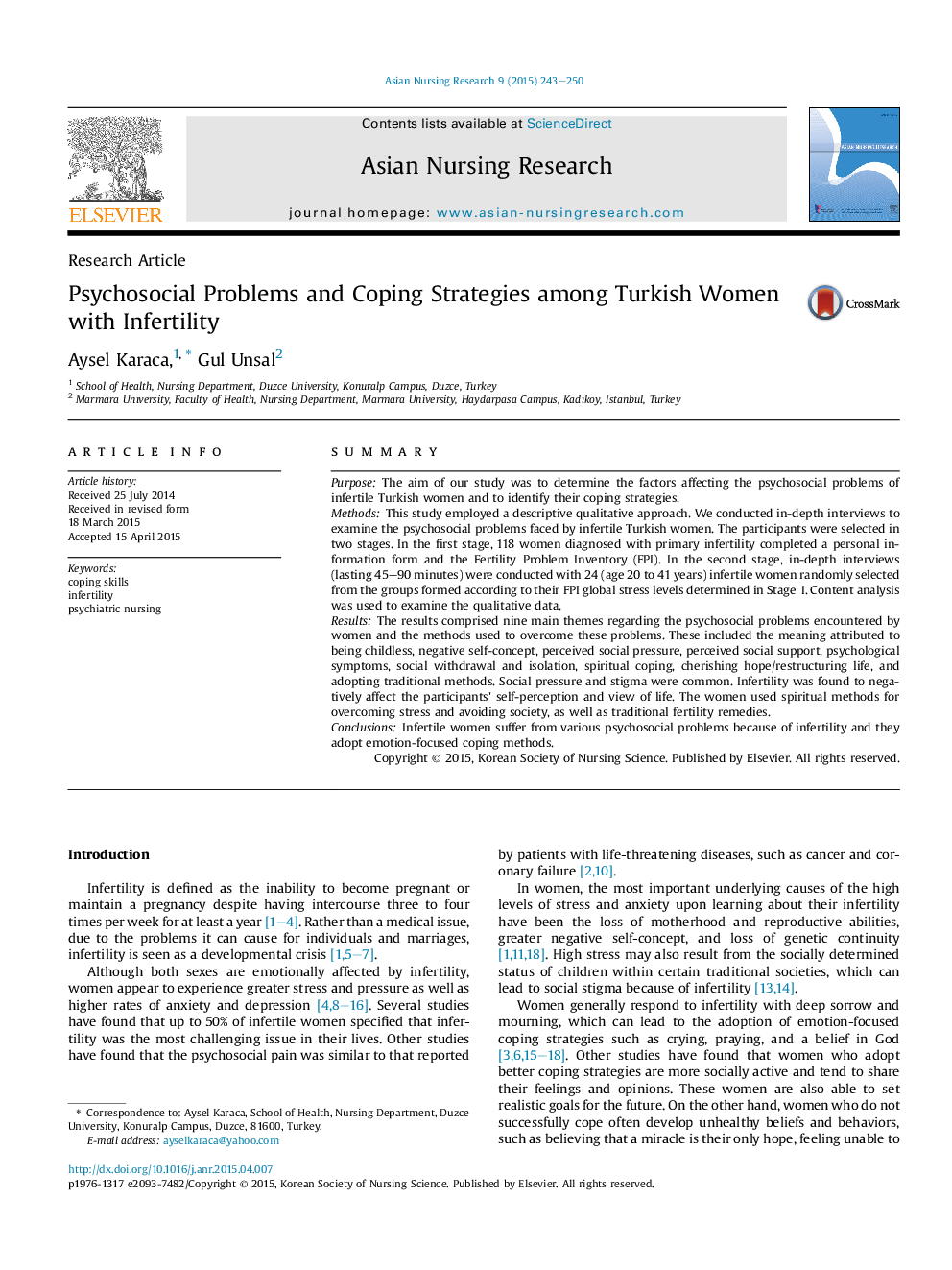| Article ID | Journal | Published Year | Pages | File Type |
|---|---|---|---|---|
| 2645178 | Asian Nursing Research | 2015 | 8 Pages |
SummaryPurposeThe aim of our study was to determine the factors affecting the psychosocial problems of infertile Turkish women and to identify their coping strategies.MethodsThis study employed a descriptive qualitative approach. We conducted in-depth interviews to examine the psychosocial problems faced by infertile Turkish women. The participants were selected in two stages. In the first stage, 118 women diagnosed with primary infertility completed a personal information form and the Fertility Problem Inventory (FPI). In the second stage, in-depth interviews (lasting 45–90 minutes) were conducted with 24 (age 20 to 41 years) infertile women randomly selected from the groups formed according to their FPI global stress levels determined in Stage 1. Content analysis was used to examine the qualitative data.ResultsThe results comprised nine main themes regarding the psychosocial problems encountered by women and the methods used to overcome these problems. These included the meaning attributed to being childless, negative self-concept, perceived social pressure, perceived social support, psychological symptoms, social withdrawal and isolation, spiritual coping, cherishing hope/restructuring life, and adopting traditional methods. Social pressure and stigma were common. Infertility was found to negatively affect the participants' self-perception and view of life. The women used spiritual methods for overcoming stress and avoiding society, as well as traditional fertility remedies.ConclusionsInfertile women suffer from various psychosocial problems because of infertility and they adopt emotion-focused coping methods.
